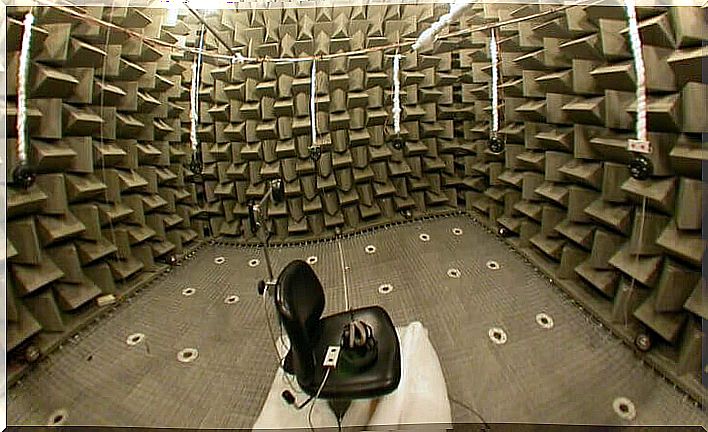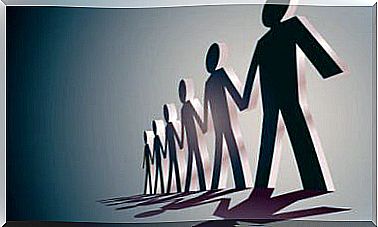What Happens To Us After Spending Half An Hour In Absolute Silence And Solitude?

There is no contradiction: moments of loneliness, silence and disconnection are necessary to motivate our vital impulse with more authenticity. In fact, it’s like hitting a reset button where every part is given more meaning. This button allows us to access that mental clarity with which to better understand people, and with which to put filters, define priorities and personal goals.
Miles Davis was one of the most famous jazz trumpeters and composers in history. One day, when young musicians asked him for advice on how to acquire his level of mastery and originality, Davis undoubtedly gave them an answer they would never forget: if there were no silences, the music would not be what it is.
He also told them that life is like a score, when you manage to get the rhythm and combine moments of activity with moments of solitude, silence and reflection. This is the only way that allows us to obtain inspiration and this melody hidden in our interior, the one that in another way we could not listen.
This is undoubtedly good advice and obvious advice. However, while it may seem logical to us, we do not always put it into practice effectively. In our world today, although it may sound curious, the loneliness that dominates is a sometimes pathological type of camouflaged loneliness that we don’t always talk about.
We are referring to the one that plunges us into hyperactivity – looking for false hyper-productivity – and hyperstimulation. We spend our days working, connected to technology, doing things, accomplishing goals, satisfying others, enveloped in the noise of our cities. On the other hand, this incessant rumor and this unstoppable activity do not always deserve the concerns they generate in us, or the time they steal from us.
If to this we add that sometimes our relationships bring us more loneliness than happiness, we will understand why each year, the rates of depression and other types of health problems that we cannot neglect keep increasing …

Lonely times are good for our brain
First of all, we must emphasize one important fact. The loneliness that is beneficial to us and reflected in our physical and psychological health is that in which the moments of loneliness and isolation are combined with a subsequent connection with the world, its noise, its shape, its colors and its colors. sensory richness and above all, with significant social relationships, whether with friends, a partner, members of our family or with work colleagues …
Human beings are not prepared to live in complete and permanent isolation. The anechoic chamber at Orfield Laboratories in Minneapolis is a striking example. It is a space in which different companies study the sound of their products: telephones, motorcycles, washing machines… In fact, it is an ultra-quiet room in which 99.99% of the sound is absorbed by walls made of steel and fiberglass, and in which various psychological experiments are also carried out.
In this space, the tranquility is so extreme that it is common to listen to the sounds of your own heart or of your own blood circulation. Nevertheless it is something for which our brain is not prepared, something which goes against our nature, our genetic programming: we are human beings who need to be connected with their environment the most. close, and when they run out of stimulus, they simply go into a panic.

On the other hand, although total isolation affects our psychological balance, occasional and time-bound isolation is beneficial to us. Scientists tell us that moments of loneliness well distributed throughout the day are like “electric shocks” capable of reincarnating us and allowing us to recover energy, meaning and inspiration.
Schedule your moments of loneliness to improve your health
We live in a society that loves independence, but nonetheless it is increasingly aligned, overburdened and accelerated. The advancement of new technologies makes our connection to one another much easier. Our cities are increasingly overcrowded. Likewise, we are each time more surrounded by artificial lights, we are less physically active because we have the opportunity to do an infinite number of things without asking for more pulsations from our heart.
Doctors, neurologists and psychologists tell us that our brains are “wired” in a very different way than they were wired 100 years ago. We receive so much stimulation during the day, and on so many fronts that it becomes almost “vital” to deal with all this sensory chaos a little better. We need stillness, we need silence and solitude from time to time to integrate all this torrent of information. The objective is none other than to give it a meaning.

On the other hand, some do not know and even worse, some feel an almost ancestral fear of one day being confronted with themselves in solitude to communicate, and to think. Such a situation can be almost as terrifying as being in the anechoic chamber of the Orfield labs for half an hour.
Because in the same way as in this space where you can listen to the sounds of your own body, moments of loneliness in more comfortable places can bring out the voids of your own being, fears, anger, node of pending problems and the exposure of an unrecognized misfortune.










